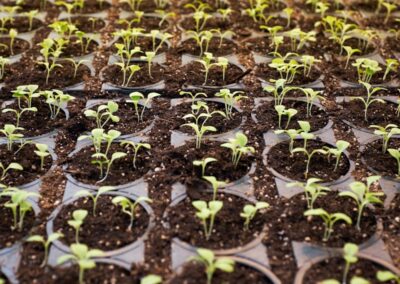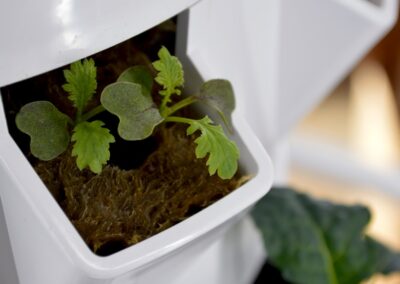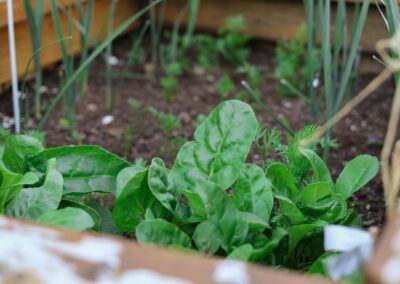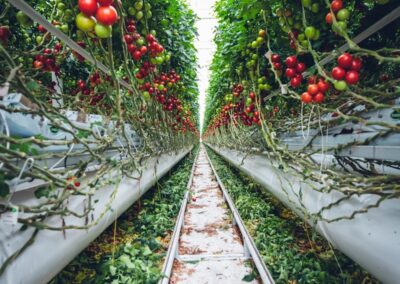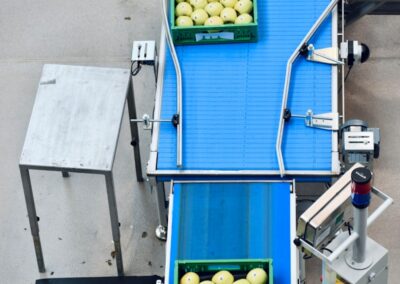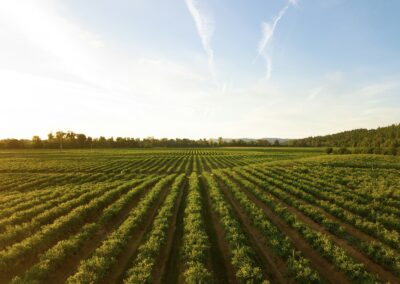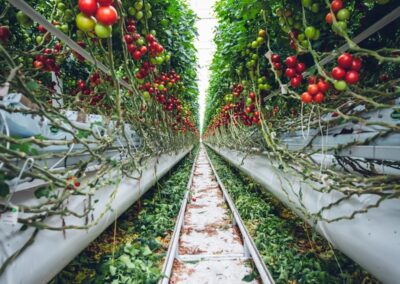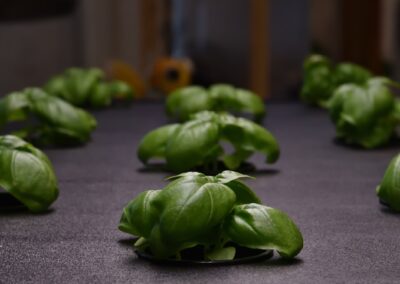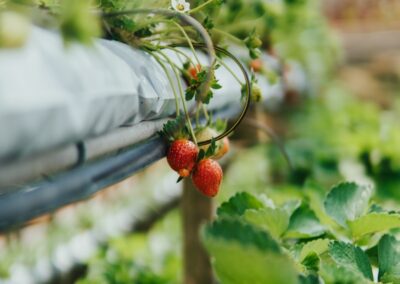Revolutionizing Urban Agriculture
Maximizing Space Efficiency with Vertical Farming
The integration of vertical farming with hydroponic systems represents a transformative approach to urban agriculture, particularly in densely populated cities like Riyadh, Dubai, and other metropolitan areas in Saudi Arabia and the UAE. By utilizing vertical space and innovative hydroponic technologies, these systems enable the cultivation of a wide variety of crops in environments where traditional farming is not feasible.
Vertical farming maximizes space efficiency by stacking layers of crops vertically, thereby significantly increasing the amount of produce that can be grown in a given footprint. This approach is particularly advantageous in urban settings, where land is limited and expensive. By integrating hydroponic systems, which use water-based nutrient solutions instead of soil, vertical farms can achieve higher crop densities and faster growth rates, leading to increased productivity.
For business executives and entrepreneurs, the space efficiency of vertical farming offers a lucrative opportunity to enter the agricultural market with lower real estate costs and higher yield potential. This innovative farming method also aligns with the sustainability goals of many urban areas, reducing the need for large tracts of arable land and minimizing the environmental impact of food production.
Supporting High-Density Crop Production
The combination of vertical farming and hydroponic systems supports high-density crop production, enabling urban farms to meet the growing demand for fresh, locally produced food. Hydroponic systems allow for precise control over growing conditions, including nutrient levels, pH balance, and water availability. This control results in healthier plants, reduced disease incidence, and higher yields compared to traditional soil-based farming.
In cities like Dubai and Riyadh, where food security and sustainability are pressing concerns, high-density crop production through vertical farming provides a viable solution. These urban farms can produce a diverse range of crops year-round, reducing dependence on imported food and enhancing local food resilience. The ability to grow crops in controlled environments also mitigates the effects of extreme weather conditions, ensuring a consistent supply of fresh produce.
Moreover, the high-density nature of vertical farming with hydroponics makes it an attractive investment for businesses seeking to capitalize on the rising demand for sustainable and locally sourced food. By leveraging this technology, companies can achieve a competitive edge in the agricultural market, offering consumers high-quality products with a lower environmental footprint.
Leveraging Advanced Technologies
Integrating advanced technologies such as Artificial Intelligence (AI), Blockchain, and the Internet of Things (IoT) with vertical farming and hydroponic systems further enhances their efficiency and sustainability. AI and IoT technologies enable real-time monitoring and optimization of growing conditions, ensuring that crops receive the optimal amount of nutrients, water, and light. This precision agriculture approach minimizes resource use and maximizes yields.
Blockchain technology can be used to create transparent and secure supply chains for vertically farmed produce. By recording every step of the production process on a blockchain, businesses can provide consumers with verified information about the origin, quality, and sustainability of their food. This transparency builds consumer trust and adds value to the products.
For business leaders and managers, the integration of these advanced technologies with vertical farming represents a significant opportunity to drive innovation and improve operational efficiency. By adopting these cutting-edge solutions, businesses can stay ahead of industry trends, reduce operational costs, and enhance their sustainability credentials.
Change Management in Urban Agriculture
The successful adoption of vertical farming with hydroponic systems requires effective change management strategies. Business leaders must be adept at navigating the complexities of transitioning from traditional agricultural methods to innovative, technology-driven approaches. This involves not only investing in new infrastructure and technologies but also fostering a culture of continuous improvement and innovation within the organization.
Executive coaching services can play a crucial role in facilitating this transition. By providing guidance and support, executive coaches help leaders develop the skills and mindset needed to lead their teams through change. This includes effective communication, strategic planning, and the ability to manage resistance to change. In cities like Riyadh and Dubai, where the agricultural landscape is rapidly evolving, strong leadership is essential for driving the successful implementation of vertical farming projects.
Furthermore, change management involves educating and training staff to operate and maintain the new systems. This ensures that the workforce is equipped with the knowledge and skills needed to maximize the benefits of vertical farming and hydroponics. By investing in human capital, businesses can enhance their operational efficiency and achieve long-term success.
#VerticalFarming #HydroponicSystems #UrbanAgriculture #SpaceEfficiency #HighDensityCrops #SustainableFarming #SaudiArabia #UAE #Riyadh #Dubai #ChangeManagement #ExecutiveCoaching #EffectiveCommunication #BusinessSuccess #ManagementConsulting #ArtificialIntelligence #Blockchain #TheMetaverse #GenerativeAI #LeadershipSkills #ManagementSkills #ProjectManagement



